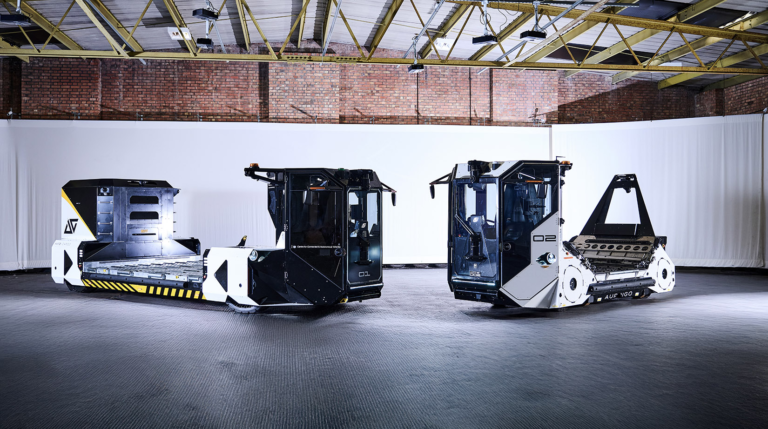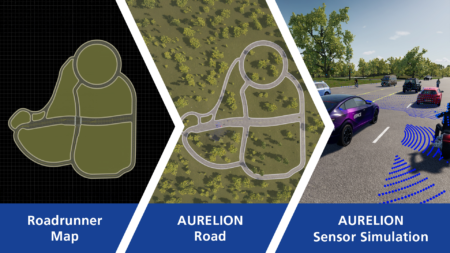Aurrigo has secured £1m (US$1.35m) support from the Connected and Automated Mobility (CAM) Pathfinder – Enhancements program and Innovate UK’s Launchpad program to start work on four new projects.
The Pathfinder program is funded by the Centre for Connected and Autonomous Vehicles (CCAV), a Department for Business and Trade (DBT) and Department for Transport (DfT) joint unit, delivered in partnership with Innovate UK and Zenzic.
Launching this summer, the Aurrigo projects span simulation, feasibility studies and real-world vehicle trials at East Midlands Airport, and in the Orkney Islands and the West Midlands. They will involve close collaboration with leading industry partners, International Airlines Group (IAG), Highlands and Islands Transport Partnership (HITRAINS) and Urban Foresight.
David Keene, CEO of Aurrigo, commented, “These awards reflect our commitment to building the next generation of intelligent, sustainable and scalable transport systems that operate in both urban and airside operations. From immersive VR for airside training to real-world AV deployments and rural mobility innovation, we’re proud to be working with exceptional partners across the UK to bring transformative change to both aviation and ground transport.”
Mark Cracknell, program director at Zenzic, said, “We are delighted with the exciting projects selected through the CAM Pathfinder Feasibility Studies and Enhancements funding competitions. The deployment of connected and automated mobility solutions has incredible potential to improve commercial and public transport while potentially providing a huge boost to the UK economy.
Cracknell added, “These four projects will provide an opportunity to demonstrate the commercial readiness of the technology while also providing valuable insight into future opportunities and use.”
Project 1: Airport logistics
This large-scale nine-month project aims to extend the work of the ongoing Autonomous Cargo program by deploying two Auto-Cargo autonomous units and one Auto-Shuttle Mk2 e-Transit vehicle at East Midlands Airport. The objective is to refine a multivehicle fleet framework for airside logistics, enabling simultaneous cargo and aircrew transportation. The project cost is £695,145 (US$935,500).
The project aims to improve environmental testing, expand simulation capabilities and modular, low-volume manufacturing to reduce costs and accelerate scalability. It will also support the commercial readiness of cargo and passenger autonomous vehicles while generating critical operational data for ongoing development.
Project 2: Autonomous baggage handling vehicles
This second nine-month feasibility study aims to unlock full autonomy for Aurrigo International’s baggage handling vehicles by developing a framework to remove the onboard safety operator – paving the way for no-user-in-charge (NUIC) operations. The project cost is £ (US$133,756).
In collaboration with IAG, the project aims to define the safety, regulatory, cybersecurity and operational standards required to enable driverless deployment at airports. Key outputs will include recommendations for system failure protocols, certification pathways, cybersecurity standards and human-machine interaction models.
Project 3: Kirkwall AutoLink
Kirkwall AutoLink aims to explore the feasibility of deploying a connected and autonomous, zero-emission shuttle service between Kirkwall Harbour and Kirkwall Airport in Orkney. The cost of this third nine-month project is £133,812 (US$180,000).
Led by Urban Foresight, with support from Hitrans and Aurrigo, the rural mobility initiative will assess technical viability, regulatory requirements, commercial models and local acceptance of operating an NUIC shuttle in a remote island context.
With over 90% of airport passengers currently relying on private cars, the study aims to support decarbonization and integrated transportation strategies through a scalable, community-led approach. A comprehensive outline business case (OBC) will be used to inform the potential for a future demonstration deployment.
Project 4: Visualizing airside baggage operation (VABO)
The final project aims to enhance Aurrigo International’s Auto-Sim platform by integrating immersive virtual reality (VR) technology into baggage handling simulations. The project will span 12 months and cost £98,642 (US$132,700). Developed using the Unity game engine, VABO enables customers to train staff and plan operations within detailed 3D airport environments that include weather dynamics, realistic lighting, aircraft and ground support equipment. An additional VR layer will introduce real-time interaction, data visualization and instant performance feedback.
In related news, Aurrigo International is expanding its vehicle line-up into North America with the deployment of its nine-seater passenger Auto-Shuttle in Kanata – the first operation of an all-season, medium-speed autonomous shuttle on public roads in Canada





